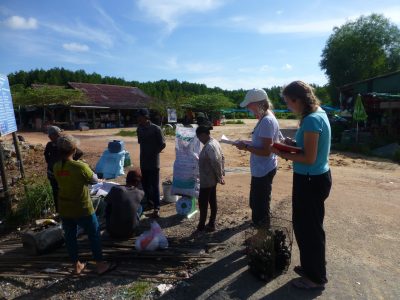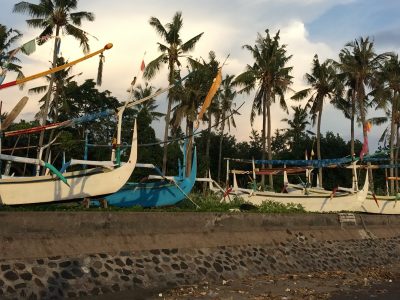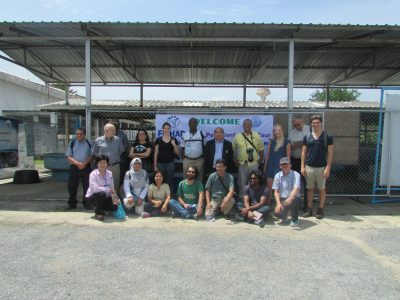Rachel Seary

Researching mangroves and fishing livelihoods in Cambodia
Nereus Fellow, Rachel Seary, a PhD Student at the University of Cambridge and the United Nations Environment World Conservation Monitoring Centre, has just returned from Cambodia, where she conducted a month long fieldwork period aimed at understanding the links between mangroves and fishing community livelihoods.

Mangroves, fisheries, and community livelihoods: Conducting fieldwork in Indonesia
Mangrove forests, made up of shrubs and trees with sprawling roots that grow in salt water, provide many services to humans and marine ecosystems. They sequester carbon, pulling it from the atmosphere, and prevent erosion of coastal areas. Due to their unique characteristics, mangrove forests provide an important source of food and shelter for marine species, including many important fisheries. Mangroves cover 150,000 km² of coastline in tropical and warm temperate regions around the world. Rachel Seary, Nereus Fellow at Cambridge/UNEP-WCMC, is currently conducting research to understand both the direct benefits that mangroves have on communities living and fishing within their vicinity and also the indirect benefits that mangroves may have on coastal fisheries productivity in Bali, Indonesia.

FishAdapt: A global conference on climate change adaptation for fisheries and aquaculture
Nereus Fellow at University of Cambridge/UNEP-WCMC Rachel Seary attended the 1st FishAdapt conference on climate change adaptation for fisheries and aquaculture, held in Bangkok from August 8 to 10, 2016. The conference aimed to provide opportunity for sharing practical experiences of climate change adaptation in the fisheries and aquaculture sectors.
FishAdapt Conference
Nereus Fellow at Cambridge/UNEP-WCMC, Rachel Seary, will attend the FishAdapt Global Conference on Climate Change Adaptation for Fisheries and Aquaculture from August 8th to August 11th in Bangkok, Thailand. With…




